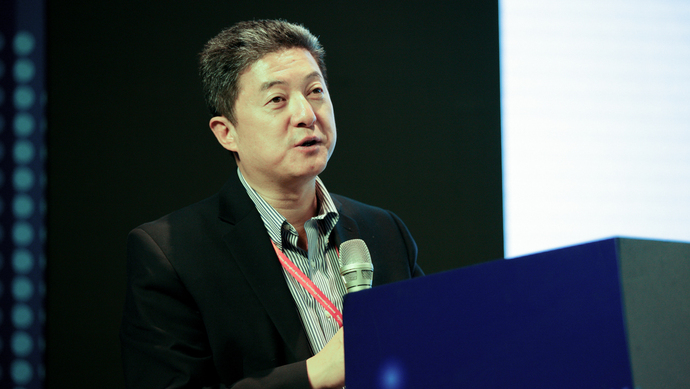According to news from The Paper on December 6, on December 6, Professor Zhang Shousheng, the founder of Danhua Capital, a Chinese-American physicist, and a disciple of Yang Zhenning, died on December 1, 2018, at the age of 55.According to reports, Zhang Shousheng suffered from depression during his lifetime.

Shou-Cheng Zhang, a Chinese-American physicist, a member of the American Academy of Arts and Sciences, a member of the National Academy of Sciences, and a foreign member of the Chinese Academy of Sciences.
Zhang Shousheng, whose ancestral home is Gaoyou, Jiangsu, was born in Shanghai and was admitted to Fudan University in 1978.In 1980, he went to study abroad at the Free University of Berlin, Germany, and received a master's degree in 1983.Later, he went to the State University of New York at Stony Brook for further study, under the tutelage of Yang Zhenning, and received a doctorate in 1987.After graduation, he worked as a postdoctoral researcher at the University of California, Santa Barbara.Then he went to IBM as a senior researcher.Since 1993, he has taught at Stanford University and has become one of the youngest tenured professors in the school.
The quantum spin Hall effect proposed by the research team led by him in 2006 was rated as one of the top ten important scientific breakthroughs in the world in 2007 by Science.In 2014, he was selected for the Thomson Reuters Citation Laureate Award and is considered a strong candidate for the Nobel Prize in Physics.In November 2014, the American Franklin Award Committee decided to award the 2015 Franklin Prize in Physics to Zhang Shoucheng, a Chinese-American physicist and professor at Stanford University, in order to reward his groundbreaking contributions in the field of topological insulator research.
In addition to the academic field, Zhang Shoucheng also founded Danhua Capital in 2013, focusing on investing in the most disruptive and influential technological achievements and business innovations in the United States.According to Danhua Capital, the investment areas it focuses on include artificial intelligence, virtual/augmented reality, big data, blockchain, enterprise-level applications and other disruptive emerging technologies.The investment stage is mainly the early stage and the growth stage.
In addition, Yang Zhenning once commented: For him, it is only a matter of time before he wins the Nobel Prize.
Resume before death:
Tenured Professor of Physics Department of Stanford University, Academician of the National Academy of Sciences, Academician of the American Academy of Arts and Sciences, Foreign Academician of the Chinese Academy of Sciences.
In 1983, he received a bachelor's degree from the Free University of Berlin, Germany.
In 1987, he received a Ph.D. from the State University of New York at Stony Brook.
From 1987 to 1989, he served as a postdoctoral researcher at the Santa Barbara Institute of Theoretical Physics in the United States.
From 1989 to 1993, he served as a senior researcher at IBM Almaden Research Center.
In 1993, he was employed by the Physics Department of Stanford University.The main research field is condensed matter physics, with a focus on topological insulators, and has achieved a large number of world-class original innovations in research directions such as high-temperature superconductivity, quantum Hall effect, spintronics, and strongly correlated electronic systems.For pioneering research on the quantum spin Hall effect and topological insulators.
In 2010, he won the Europhysics Prize.
In 2012, he was awarded the Oliver Buckley Award of the American Physical Society.
In 2012, he was awarded the Dirac Medal and Prize by the International Center for Theoretical Physics under UNESCO.
In 2013, he won the Physics Frontier Prize and accepted the award on stage with the famous physicist Stephen Hawking.
Received the Benjamin Franklin Medal in 2014.Previous winners of the award include scientific giants Einstein, Madame Curie, Stephen Hawking, Yang Zhenning, and 116 Nobel Prize winners, as well as inventors Thomas Edison (the inventor of electric light), Tesla (Nikola Tesla), inventor of the alternating current grid), Bell (Alexander Bell, inventor of the telephone) and Wright (Orville Wright, inventor of the airplane).



